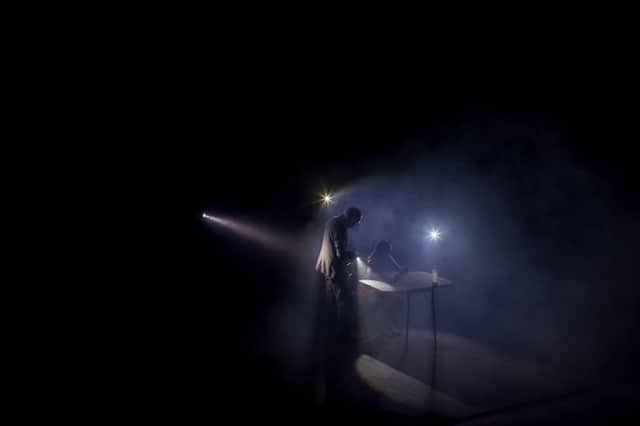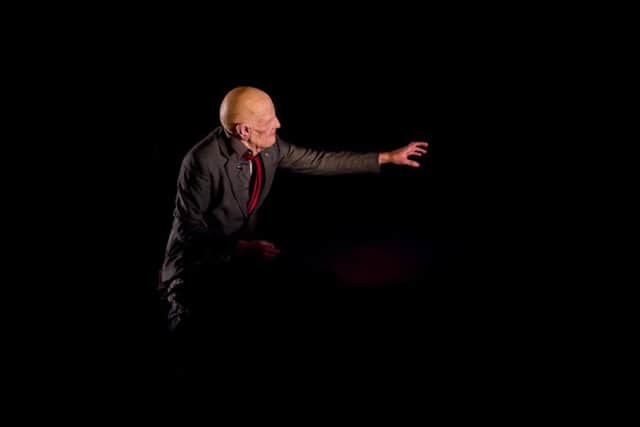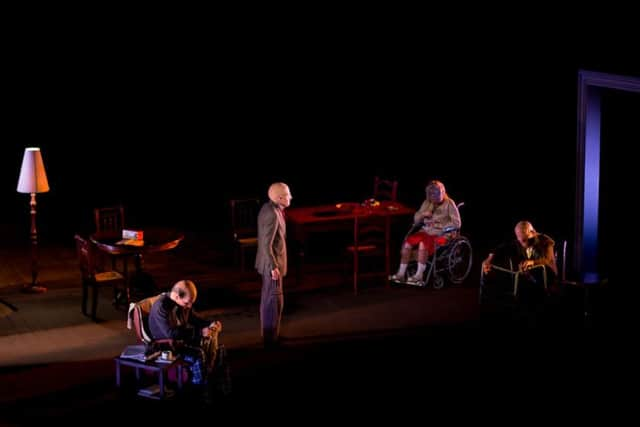Play explores our care for elderly and vulnerable


Tomorrow, the new show by Scottish theatre company, Vanishing Point, tackles one of the most pressing issues facing society – the growing need to care for an ageing population. But Vanishing Point’s work is never predictable. and Tomorrow – which opened at the Brighton Festival in May, and has just been playing to sell-out audiences in Brazil before coming to Glasgow as part of Luminate, Scotland’s festival of creative ageing – promises a fresh look at a thorny subject.
“I’m not trying to make any point about the virtue or not of carers or the state of the NHS,” says the company’s artistic director, Matthew Lenton. “For me it’s much more universal. It’s not about dementia, it’s about someone who has dementia, and also about care and how we care.”
Advertisement
Hide AdHis approach to the subject came through a deeply personal experience, not of caring for the old, but for the very young. His daughter, Lucy, was born in 2010 with Ohtahara Syndrome, a rare progressive neurological disorder, and died last year just before her third birthday. Lenton and his wife, Nina, found that instead of joyful new parenthood, they were thrust into the role of full-time carers for their sick daughter.


“I think how you deal with it surprises you, how much empathy you find in yourself that you didn’t know you had,” Lenton says. “We were told that Lucy would never be able to smile or feed herself, but gradually, because of our care for her, particularly my wife’s, she began to smile, she learned to suck a bottle. But also, how hard it is sometimes, how relentless, in the middle of the night after no sleep for two days when Lucy wouldn’t stop crying. I became interested in that aspect, about someone who is pushed to the limits of care.
“We dedicated so much time and space and love to Lucy, so when she died, the space that she left was massive as well. I think in all of that I started to think about [making a show about] the idea of caring for someone else. It made me realise how vulnerable we all are. Then you realise that we’re all – if we’re lucky, if we make it that far – going to be in a position where we need care.”
The next step was to take the idea and subject it to Vanishing Point’s very particular process of making theatre. Each show is created in the rehearsal room, and Lenton, together with the actors, evolves not only a script but a theatrical form which suits each new subject matter. Their production of The Sightless, Maeterlinck’s symbolist drama about a group of blind people lost in a forest, was staged in the dark. Home Hindrance was site-specific, a play about living with chronic illness staged in a flat for an audience of six. Interiors, the company’s most successful show to date, which has travelled to Italy, Belgium, London, Moscow, Argentina and Chile, explored the fears and hopes of a group of friends at a dinner party, separated from the audience by a glass screen.
Looking for a way to explore dementia, to communicate the sense of a young man who finds himself trapped in an ageing body, they started to experiment with realistic prosthetic masks. But soon they learned there was as much challenge as there was potential: actors wearing the masks could barely speak. “Sometimes you feel you’re going one step forward and two steps back,” says Lenton. “You find a form and that form gives you rules and constraints and you have to struggle with that. You just have to keep pushing until you discover the form of the show.


“I wasn’t interested in doing something naturalistic about a young woman taking her father to an old people’s home and someone saying ‘Sit down, and have a cup of tea’. But there are a lot of implied questions: is vocational caring more important than somebody who is caring to earn money? Is it more important for a family member to care for someone than nurses? For me, making theatre works a lot more like a poem or a painting. Creating space for the audience to put themselves into what they’re seeing is very important to me.”
Advertisement
Hide AdVanishing Point’s work is highly visual, with elements such as lighting playing an important part (lighting designer Kai Fischer is an associate with the company), but at their recent performances in Brazil and Sao Paolo, they were forced to improvise a simpler production when their freight containing the set, costumes and props was held at customs. “We lost the visual elements of the show,” says Lenton. “We had to work with our partners there to find as much as we could that looked similar. But I found it quite exciting, in a perverse way. There’s something to be said for being forced to do the show in such a reduced way. Often, cultural exchange is about how you cope under pressure.”
Since the company was founded, it has drawn on international influences, and now increasingly works with international partners. Tomorrow is a co-production with the Brighton Festival and Cena Contemporanea in Brazil, and has cast members from Brazil, Russia and Serbia as well as the UK. Early workshops were conducted at the Stanislavsky Foundation in Moscow with a company of Russian actors working alongside Chinese performers from the Peking Opera tradition.
Advertisement
Hide AdIt’s all part of Lenton’s desire to keep on innovating, taking risks, setting the company new challenges. Some projects are more risky than others: Wonderland, a show exploring the implications of internet pornography, staged at the Edinburgh International Festival in 2012, was one the company’s most challenging works to date. Others, like The Beautiful Cosmos of Ivor Cutler, a co-production with the National Theatre of Scotland, made this spring at the same time as Tomorrow, was widely praised for its moving exploration of Cutler’s life, and its towering central performances by Sandy Grierson and Elicia Daly (who is also in Tomorrow).
Lenton says: “After Interiors, I felt there was demand for another show behind glass, and I thought, that’s exactly what I don’t want to do, to spend my life trading on an aesthetic. On one level, I can see that it gives you a trademark and makes you currency on an international circuit, but artistically it can be stifling. You always want to explore something new.”
• ‘Tomorrow’ is at Tramway, Glasgow, from today until 11 October. The Luminate Festival runs until 31 October, www.luminatescotland.org